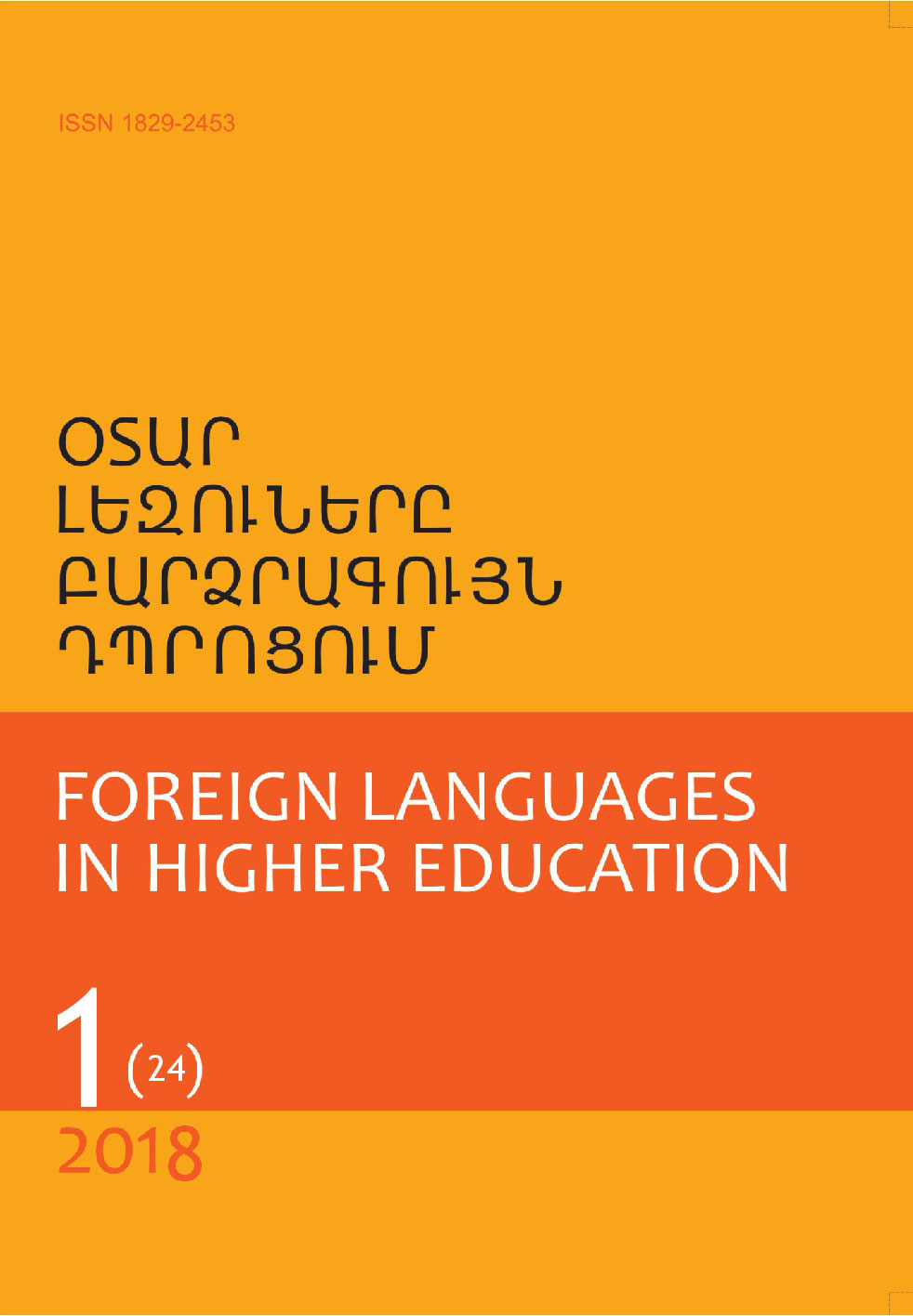ON SOME COGNITIVE CHARACTERISTICS OF ENGLISH NEOLOGISMS
DOI:
https://doi.org/10.46991/FLHE/2018.22.1.023Keywords:
neologism, onomasiology, cognitive approach, folk etymology, association, blending, conceptual blending theoryAbstract
The paper touches upon some issues connected with cognitive characteristics of English neologisms with special reference to the processes of generating a new linguistic sign. Some factors (such as different associations, folk etymology) which precondition the outer sound form of a newly emerging word are examined. Associations play a great role in the processes when a proper noun becomes a common noun – a phenomenon which is illustrated with the help of the descriptivist and the causal theories. Special attention is paid to blending as one of the most productive word-formation means in contemporary English in the light of conceptual blending theory, suggested by Gilles Fauconnier and Mark Turner.
Downloads
Published
Issue
Section
License
Copyright (c) 2018 Araksya STEPANYAN

This work is licensed under a Creative Commons Attribution-NonCommercial 4.0 International License.




